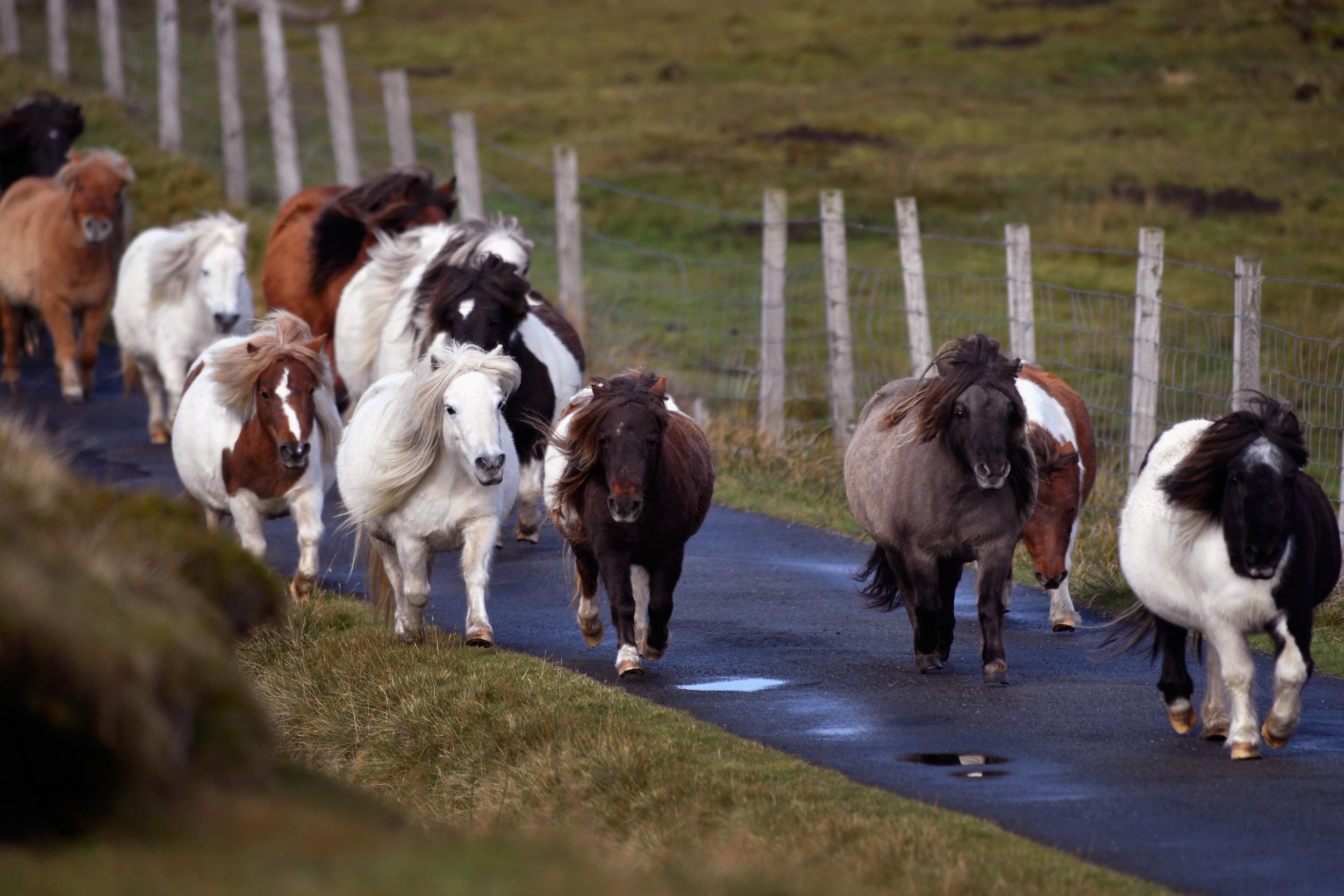Scottish island has more Shetland ponies than people
There are 50 ponies to every one human being on Foula Island

Your support helps us to tell the story
From reproductive rights to climate change to Big Tech, The Independent is on the ground when the story is developing. Whether it's investigating the financials of Elon Musk's pro-Trump PAC or producing our latest documentary, 'The A Word', which shines a light on the American women fighting for reproductive rights, we know how important it is to parse out the facts from the messaging.
At such a critical moment in US history, we need reporters on the ground. Your donation allows us to keep sending journalists to speak to both sides of the story.
The Independent is trusted by Americans across the entire political spectrum. And unlike many other quality news outlets, we choose not to lock Americans out of our reporting and analysis with paywalls. We believe quality journalism should be available to everyone, paid for by those who can afford it.
Your support makes all the difference.A Scottish island is home to more Shetland ponies than human beings.
The island of Foula, an isle off the north-eastern coast of Scotland, contains 50 ponies to every one person.
Perhaps unsurprisingly, Foula is where the Shetland breed originates from, and the ponies are said to have lived there since the Bronze Age (3200-600 BC).
With just 38 human inhabitants, Foula is one of Britain's most remote inhabited islands and is often referred to as “The Edge of the World”.
Measuring just three-and-a-half miles long by two-and-a-half miles wide, it is located twenty miles from its nearest neighbour and transport links to the island are sparse.
Foula even uses a different calendar to the rest of Great britain, operating by the Julian calendar, meaning Christmas is celebrated on 6 January and New Year's Day is on the 13th.
To get to Foula you have to either take a ferry from the mainland, which departs just three times a week, or an eight-seat plane, which operates four times a week and only runs during the summer.
In fact, it has recently been suggested that Foula is "too cut off", after a study raised questions over its long-term sustainability because of “an ongoing challenge of providing fire cover at the airfield”.
The study, by consultants Peter Brett Associates LLP, revealed a “significant weekend connectivity gap”, reported the Herald Scotland last week.
As well as being home to a vast number of ponies, Foula contains huge colonies of seabirds, reflecting the name ‘Foula’, which means ‘Bird Island’ in Old Norse - harking back to when Norsemen conquered the island back in 800 AD.
Safe to say, regardless of whether changes take place in the transport links to Foula, the ponies and the seabirds are there to stay.
Join our commenting forum
Join thought-provoking conversations, follow other Independent readers and see their replies
Comments